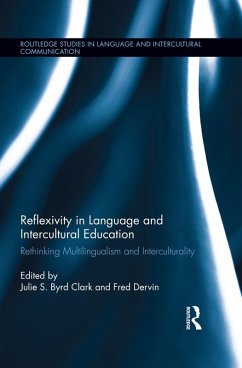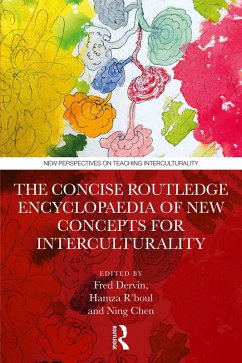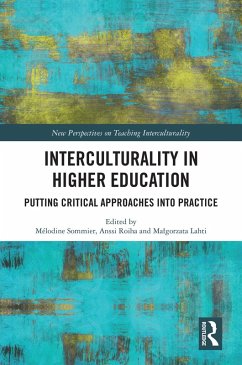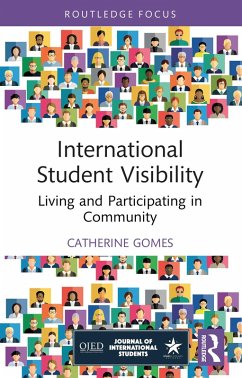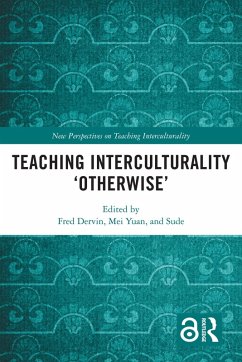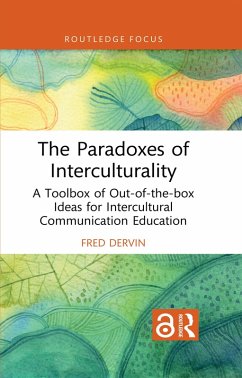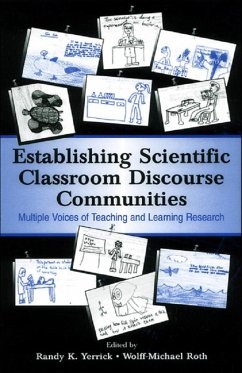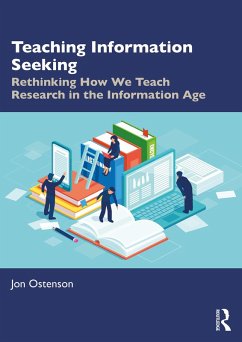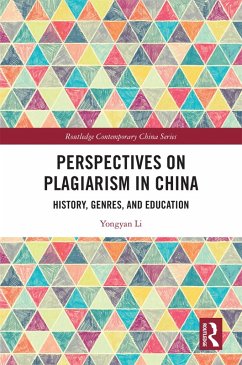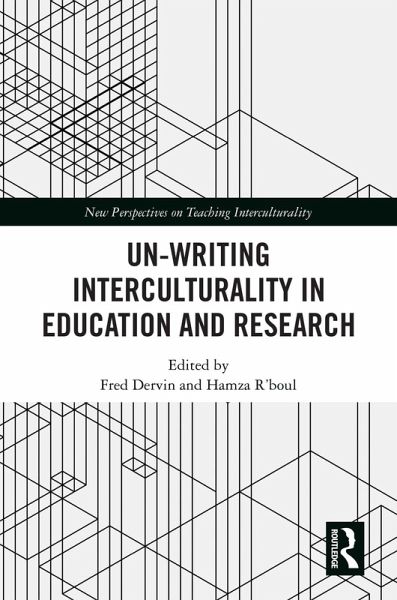
Un-writing Interculturality in Education and Research (eBook, ePUB)
Versandkostenfrei!
Sofort per Download lieferbar
52,95 €
inkl. MwSt.
Weitere Ausgaben:

PAYBACK Punkte
26 °P sammeln!
This highly original and stimulating edited volume focuses on ways of un-writing the polysemous, controversial and highly political notion of interculturality in research and education.The authors argue that no 'critical' perspective on interculturality can do without revising, exploring and creating ways of engaging with different and potentially new aspects and forms of inquiry of the notion in writing. They also claim that un-writing interculturality can serve an emancipatory function towards an epistemic re-appraisal of the mainstream(s) and the dominant(s). While critiquing problematic pe...
This highly original and stimulating edited volume focuses on ways of un-writing the polysemous, controversial and highly political notion of interculturality in research and education.
The authors argue that no 'critical' perspective on interculturality can do without revising, exploring and creating ways of engaging with different and potentially new aspects and forms of inquiry of the notion in writing. They also claim that un-writing interculturality can serve an emancipatory function towards an epistemic re-appraisal of the mainstream(s) and the dominant(s). While critiquing problematic perspectives, as well as the 'taken-for-granted' and 'things as usual' within interculturality scholarship, writing about interculturality is epistemically significant and indicative of change in the ways the notion is used. Each chapter reflects on how to un-write, un-do and un-learn interculturality in research and aims to provide some answers to the following questions: What could un-writing interculturality mean? What are the pros and cons of un-writing in research on intercultural communication education? and How does constant work on languaging around interculturality contribute to enriching the notion globally?
The book is aimed at students and scholars who wish to push the boundaries of scholarly engagement with interculturality, especially in relation to their modalities of writing, reasoning and critiquing.
The authors argue that no 'critical' perspective on interculturality can do without revising, exploring and creating ways of engaging with different and potentially new aspects and forms of inquiry of the notion in writing. They also claim that un-writing interculturality can serve an emancipatory function towards an epistemic re-appraisal of the mainstream(s) and the dominant(s). While critiquing problematic perspectives, as well as the 'taken-for-granted' and 'things as usual' within interculturality scholarship, writing about interculturality is epistemically significant and indicative of change in the ways the notion is used. Each chapter reflects on how to un-write, un-do and un-learn interculturality in research and aims to provide some answers to the following questions: What could un-writing interculturality mean? What are the pros and cons of un-writing in research on intercultural communication education? and How does constant work on languaging around interculturality contribute to enriching the notion globally?
The book is aimed at students and scholars who wish to push the boundaries of scholarly engagement with interculturality, especially in relation to their modalities of writing, reasoning and critiquing.
Dieser Download kann aus rechtlichen Gründen nur mit Rechnungsadresse in A, B, BG, CY, CZ, D, DK, EW, E, FIN, F, GR, HR, H, IRL, I, LT, L, LR, M, NL, PL, P, R, S, SLO, SK ausgeliefert werden.





